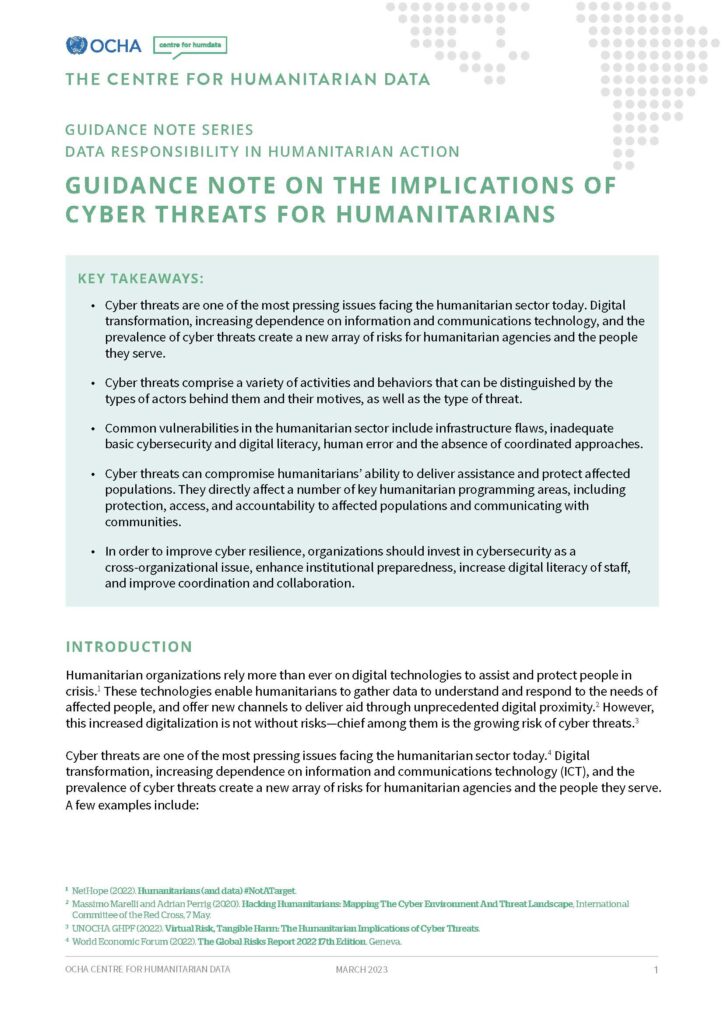Share
This Guidance Note is also available in Arabic.
Digital transformation, increasing dependence on information and communications technology, and the prevalence of cyber threats create new risks for humanitarian agencies and the people they serve. Common vulnerabilities in the humanitarian sector include infrastructure flaws, inadequate basic cybersecurity and digital literacy, human error and the absence of coordinated approaches.
The Centre has developed a Guidance Note to help build a common understanding and support more strategic, collective action to improve cyber resilience within the sector. The note provides an overview of the cyber threats, vulnerabilities, and implications facing humanitarians and people affected by crises. Recommended actions include investing in cybersecurity as a cross-organizational issue, enhancing institutional preparedness, increasing digital literacy of staff, and improving collaboration.
 The Centre, together with key partners, is publishing a series of guidance notes and tip sheets on Data Responsibility in Humanitarian Action to provide guidance on specific issues, processes and tools for data responsibility in practice. The guidance notes and tip sheets published in 2022-2023 have been made possible with the support of the Government of Switzerland.
The Centre, together with key partners, is publishing a series of guidance notes and tip sheets on Data Responsibility in Humanitarian Action to provide guidance on specific issues, processes and tools for data responsibility in practice. The guidance notes and tip sheets published in 2022-2023 have been made possible with the support of the Government of Switzerland.
Read the other guidance notes on Statistical Disclosure Control, Data Incident Management, Data Responsibility in Public-Private Partnerships, Humanitarian Data Ethics, Data Impact Assessments, Data Responsibility in Cash and Voucher Assistance, Responsible Data Sharing with Donors, Responsible Approaches to Data Sharing and Data Security in Operational Data Management here. The notes are also available in Spanish and in French.
For more on data responsibility in humanitarian action, visit the Data Responsibility page on the Centre’s website or contact our team at centrehumdata@un.org.